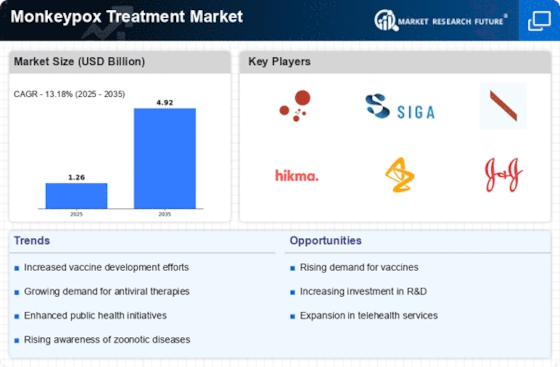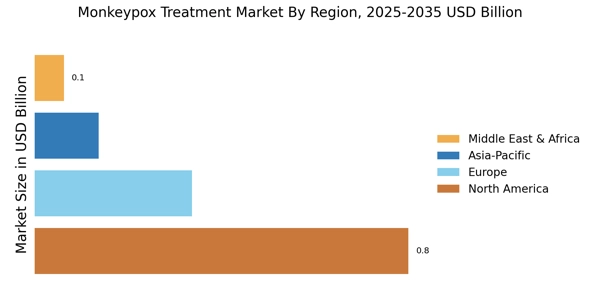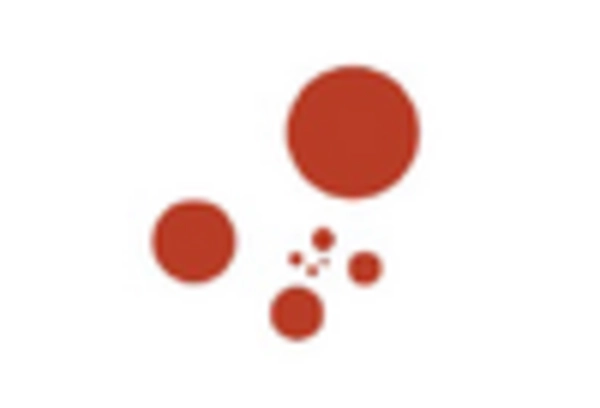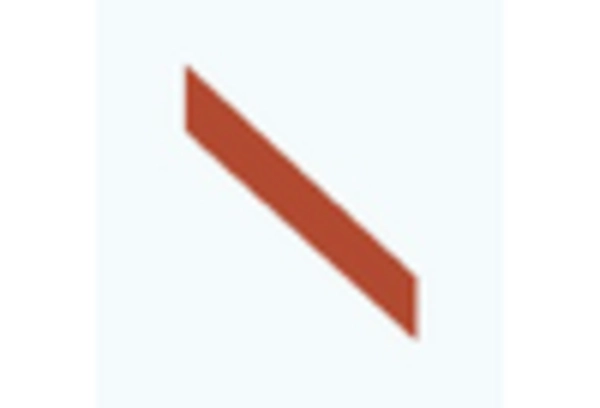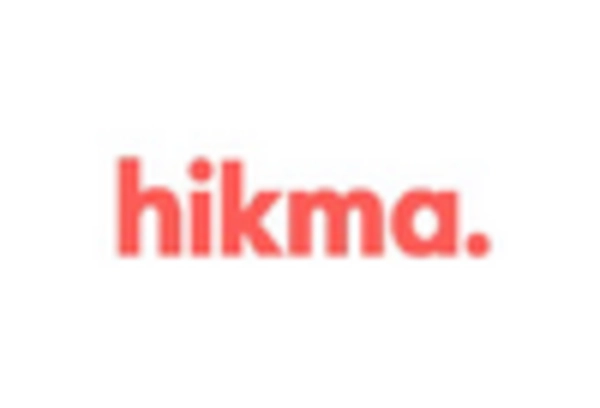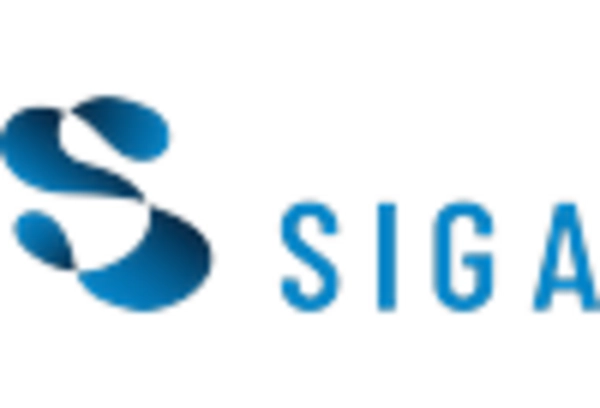Advancements in Vaccine Development
Advancements in vaccine development represent a crucial driver for the Monkeypox Treatment Market. Recent breakthroughs in vaccine technology have led to the creation of more effective and safer vaccines against monkeypox. These innovations are likely to enhance public confidence in vaccination programs, thereby increasing uptake rates. The availability of new vaccines could potentially reduce the incidence of monkeypox, which in turn may influence treatment demand. Furthermore, regulatory agencies are expediting the approval processes for these vaccines, reflecting a commitment to public health. As a result, the Monkeypox Treatment Market is poised for growth, driven by the dual focus on prevention through vaccination and treatment for those affected.
Growing Incidence of Monkeypox Cases
The rising incidence of monkeypox cases is a primary driver for the Monkeypox Treatment Market. Recent data indicates that the number of reported cases has increased significantly, prompting health authorities to prioritize treatment options. This surge in cases has led to heightened awareness and urgency among healthcare providers and policymakers. Consequently, pharmaceutical companies are investing in the development of effective treatments and vaccines. The World Health Organization has noted that the need for effective therapeutic solutions is critical, as outbreaks can strain healthcare systems. This growing incidence not only drives demand for existing treatments but also stimulates innovation in the Monkeypox Treatment Market, as stakeholders seek to address the evolving challenges posed by the disease.
Emerging Therapeutic Options and Innovations
Emerging therapeutic options and innovations are pivotal drivers for the Monkeypox Treatment Market. The landscape of treatment is evolving, with new antiviral drugs and therapies being developed to combat monkeypox effectively. Research institutions and pharmaceutical companies are exploring novel compounds that may offer improved efficacy and safety profiles. This innovation is crucial, as it addresses the need for more effective treatment modalities in light of changing epidemiological patterns. Additionally, the introduction of combination therapies may enhance treatment outcomes for patients. As these new options become available, they are likely to reshape the Monkeypox Treatment Market, fostering competition and encouraging further research and development.
Rising Public Awareness and Education Campaigns
Rising public awareness and education campaigns are increasingly influencing the Monkeypox Treatment Market. As health organizations launch initiatives to educate the public about monkeypox, the understanding of the disease and its treatment options is improving. These campaigns aim to dispel myths and provide accurate information, which is essential for early detection and treatment. Increased awareness can lead to higher rates of diagnosis and treatment-seeking behavior among affected individuals. Consequently, this heightened awareness is expected to drive demand for treatment options, as individuals become more informed about available therapies. The Monkeypox Treatment Market stands to benefit from this trend, as informed patients are more likely to engage with healthcare providers.
Increased Government Funding for Infectious Disease Research
Increased government funding for infectious disease research is a significant driver for the Monkeypox Treatment Market. Governments are recognizing the importance of preparedness against infectious diseases, leading to substantial investments in research and development. This funding is directed towards understanding monkeypox and developing effective treatment protocols. For instance, recent allocations have been made to support clinical trials and the development of antiviral medications. Such financial backing not only accelerates the pace of research but also encourages collaboration among academic institutions, pharmaceutical companies, and public health organizations. This collaborative environment is likely to yield innovative solutions, thereby enhancing the Monkeypox Treatment Market.


